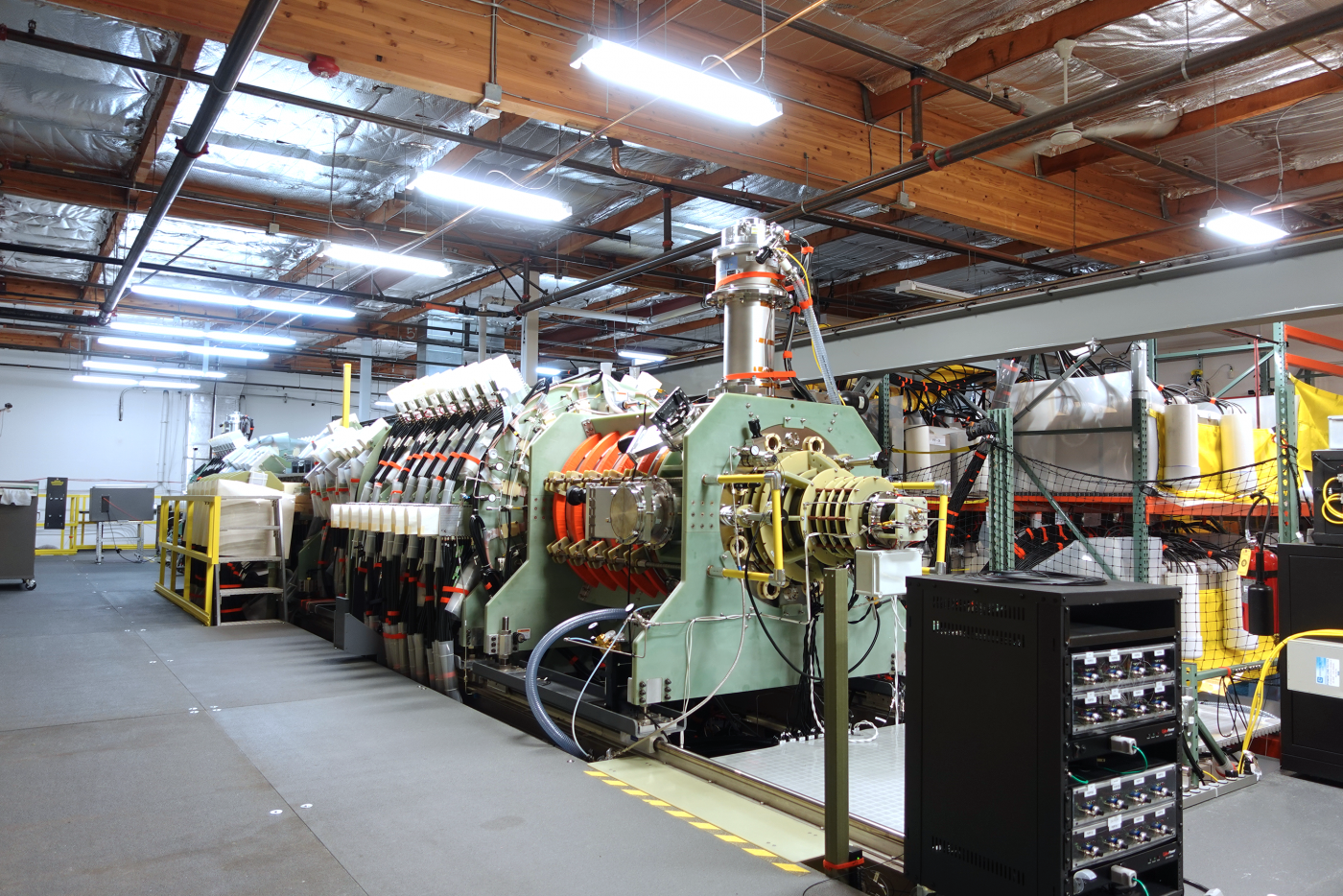In the quiet suburbs of Everett, Washington, a small private company is building what could be the most important machine on Earth. Its name is Helion Energy. Its mission? Nothing less than bottling a star—and lighting up our future—clean, limitless, and faster than China.
Helion is developing a magneto-inertial fusion technology to produce helium-3 and fusion power via aneutronic fusion, which could produce low-cost clean electric energy using a fuel that can be derived exclusively from water. Green Prophet’s Brian writes here: What is fusion and why is it so hard?
While the world scrolls TikTok and argues about AI doom scenarios, a real technological arms race is unfolding: Who will master fusion energy first—and rewrite the next century’s economic and political order? If Helion succeeds in its mission it might also put terrorists out of business.
Helion Energy thinks they have the answer. And they have AI on their side.
Fusion at the Speed of Algorithms

A Helion reactor
Unlike mega-government projects like Europe’s ITER, which has been famously “30 years away” for 30 years, Helion is running on Silicon Valley speed. Their weapon of choice is magneto-inertial fusion, squeezing plasma with magnetic fields instead of building reactors the size of cathedrals. Here’s where AI comes in.
Helion’s plasma accelerators generate a storm of complex data—magnetic fields, particle velocities, temperatures over 100 million degrees. Too much for any team of humans to control in real-time.
Instead, Helion uses machine learning to tweak and optimize reactor operations pulse-by-pulse. Every shot teaches the system something new: how to better confine the plasma, adjust the magnetic fields, prevent instabilities, and reach the holy grail of energy gain—producing more energy than it consumes. In 2021 cleantech blog Canary Media asked if VCs were throwing $500 million at science fiction. Let’s see who has the last laugh.
Without AI, we’d still be waiting for fusion in 2080?
With AI, Helion is betting on delivering grid-ready fusion electricity as soon as 2028, through a historic deal signed with Microsoft. If they succeed, it would mark the first time in history that humanity pulls useful electricity directly from fusion reactions—the same reactions that power our sun.
The Real Race: Helion vs. China
But it’s not just a scientific experiment. It’s a race—and the finish line could define the balance of world power for centuries. China’s state-backed fusion programs, like the EAST “artificial sun” project, are pushing hard, using their own AI systems to optimize plasma confinement. Their fusion reactors are holding plasma steady for record-breaking periods, and they aren’t slowing down.

Helion co-founders Chris Pihl and David Kirtley (Helion)
In a recent warning, former U.S. Treasury Secretary Hank Paulson said that leadership in clean energy—including fusion—will define who leads global economies, militaries, and industries in the 21st century. Like the Ukraine and Russian war upended the world –– and it was over energy imbalance –– whoever wins fusion will no longer be dependent on fossil fuels—and will hold the power to cripple rivals who still are.
Oil Powers Beware: Qatar, Saudi Arabia, and Iran on Notice
If fusion becomes cheap and reliable, it will collapse the global demand for oil and gas. All these mega projects and oil-funded terrorist activities in Iran, in Yemen, in Syria and in Lebanon, will end. Saudi Arabia is signing the Abraham Accords with Israel to join the wave of the west and the United Arab Emirates is already there. Oil nations know that the demand for oil is temporary. A giant shift in energy acquisition will change the game for good.
Terror groups that thrive on petrodollar-funded instability—from Hezbollah to ISIS and beyond—would find their cash flow cut off. Countries that are developing on nations without restraint (read our latest on the Seychelles and Qatar) will be cut off from the flow of funds and wealth. Without oil as leverage, authoritarian regimes built on energy riches would face either collapse—or painful transformation. We see that Saudi Arabia is opening up to the world in archaeology, development, tourism. And this will protect its survival of a nation.
In simple words if fusion energy works, is not just about lighting up your house. It’s about turning off the money tap that funds wars, terrorism, and dictatorship.
Helion’s Big Bet
Helion’s model plays to America’s old strength: innovation through agility, not top-down megaprojects. Instead of waiting for 2050, Helion’s compact reactors aim to deliver electricity in a matter of years—and not just for cities, but for data centers, isolated industries, military bases, even disaster zones. Their current prototype, Polaris, is scheduled to fire in 2025. If Helion succeeds, it won’t just disrupt global energy. It could redraw the world map.






